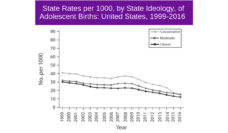Kayla McKean, a researcher at James Madison University describes the sex ed program, Vision of You (VOY), as a “fully online, self-paced program that uses videos, games, and interactive components to teach about STIs, consent, gender, and sexual identity, among other sexual health topics. There are anatomy explorers where students can click on reproductive body parts to learn what they do and hear the pronunciation. And there are videos that portray scenarios such as what your first appointment at a sexual health clinic might look like.
“The students select from a diverse group of life-like characters to follow throughout the program. The students really liked the stories where their character navigated conversations with peers and family, learned about red and green flags in relationships, STIs, etc. The student can make decisions for their character and help them reach their goals throughout the program.
“All STI info is depicted through animated characters, which gives it a lot of humor and makes it easy to understand. The games reinforce the knowledge.”
Kimberlee Hartzler-Weakley, co-author and researcher on the Vision of You team adds, “Chlamydia is our favorite character, and we turned her into a plush keychain!”
To test if VOY was better at encouraging healthy sexual behaviors among high-risk youth than standard sex education, the team conducted a clinical trial across roughly thirty sites in Virginia. One of main objectives was to improve sexual health behaviors among incarcerated youth, and nine juvenile detention centers that implemented the program.
Over 700 high school-aged students completed the program, and Hartzler-Weakley says, “VOY didn’t influence the amount of sexual activity nine months after finishing the program compared to the students who received standard sex ed in a classroom setting, but don’t worry, there’s good news. We saw a decrease in the number of recent sexual partners and lower rates of unprotected sex among VOY students than other students.”
Vision of You was well-received among juvenile detention centers’ staff and students, but there were multiple barriers to implementing the program and recruiting participants in those settings. Hartzler-Weakley describes the difficulties, “Detention centers have their own institutional review boards (IRB) to decide what programs can be implemented. And we had to get the Vision of You trial approved by James Madison University to even start the approval process with the detention center. We had to make a lot of changes based on the detention center protocols, and some sites wouldn’t talk to us until we got approval from JMU, so there was a lot of back and forth.”
McKean adds, “Parental consent was another barrier for incarcerated participants. There were multiple reasons for this. For example, parents were not in the picture, or youth were placed hours away from their community and it was difficult for parents to get to visiting hours.
“Education provided in detention centers is another big issue. Detention centers generally push people to get a GED and it is up to each school district in the state to decide whether to provide any sex ed. Juvenile detention centers operate as their own school district, and the superintendent decides what education they provide.”
Despite barriers, Hartzler-Weakley was optimistic about the next steps for the successful program. “We’re figuring out how to implement VOY in other places in and outside Virginia as well as in mainstream classrooms. Virginia is a conservative state, especially in rural areas. There needs to be more outreach to help parents understand that we are not teaching kids how to have sex, which is what some think.”
STI rates are rising throughout the country, and online programs like Vision of You could be helpful for adolescents to develop healthy and safe sexual behaviors. Evidence from this clinical trial may get VOY in more places as the program gets marketed to new communities and schools.
Photos provided














